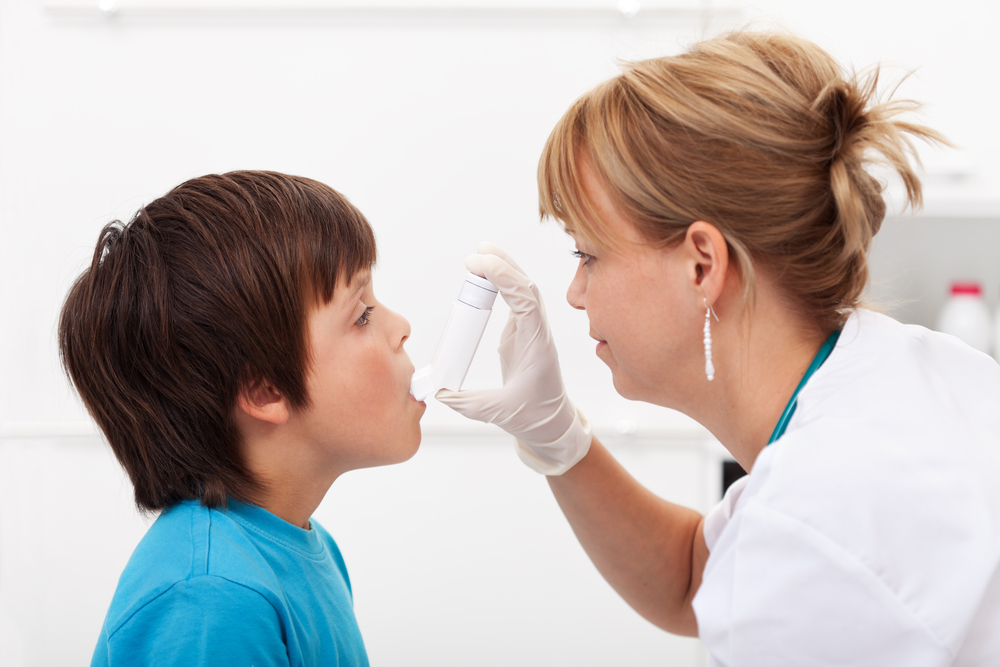There are too many allergens spread in the environment that we encounter daily, it’s almost impossible to keep their record. But you must know about and identify some particular elements causing allergy induced asthma, as only their elimination will save your airways from damaging.
It’s not that every chemical material or every dust mite affects the bronchitis tubes in the same way. Some people have strong immune system to resist allergens, while some people give in to the toxic effects and develop allergy induced asthma symptoms. In this regard, kids and teenagers are more affected than adults.
Clinically, asthma can be defined as a condition of breathlessness due to irritation or blockage in the airways. The reversible airflow obstruction could be due to virus, bacteria, infection and allergy that cause swelling and inflammation in the bronchial tubes. Those who have allergies, their immune systems work too hard to resist allergic effects.
Allergic asthma is a very common condition in which allergens get passed through airways hurting its sensitivity and severely disturbing our lungs. Both asthma medication and natural treatment try to keep such allergens away from the contact of bronchial tubes. There are three major categories of allergic asthma, such as:
- Mild level of intermittent asthma
- Moderately persistent asthma
- Severe persistent asthma
The patients of mild allergic asthma witness its symptoms at least twice a week. Though pulmonary function remains normal but mild airflow obstruction causes reverse airflow. In the moderate asthma, you face asthma attack almost daily and, at least one night in a week is badly disturbed.
As name suggests, the most dangerous condition is severe persistent asthma in which allergy-induced asthma symptoms affect your physical activities and your nights become nightmare. The allergy induced asthma treatment tries to prevent such allergens by strengthening the immune system.
Also Read: Know about various types of asthma
Allergy induced asthma symptoms:
The airflow obstruction due to allergy is identifiable from some common signs and symptoms, such as:
- Persistent cough
- Slurred speech
- Chest tightness
- Difficulty swallowing
- Shortness in breath
- Wheezing
- Nasal congestion
- Rapid breathing
The severity of allergic effects on airways can be assessed by:
- Nature of cough
- Wheezing incidents
- Necessity for consulting doctor
- The days of missing office or school in a month
- The intensity of drugs prescribed to treat
- Status of immune system’s resistance
The signs of hyperinflation and stagnant diaphragms are quite visible in the severe asthma. Its treatment takes into account the past the symptomatic period along with current status of allergy.
Causes of Allergic Asthma:
Children and adolescents are most affected by the allergic asthma, as about 50% of its patients are below 30. When it comes to count the factors responsible for asthma, you must consider all including genetic and seasonal exacerbations. The other allergens that cause the allergic asthma include:
- Dust mire
- Chemical hazards
- Toxic smoke
- Pet dander
- Plastic materials
- Perfumes and beauty products
Allergy induced asthma treatment:
The identification of allergic elements and rectification airways’ inflammation are two parts of the treatment that doctors perform during medication procedure. You have to understand the nature of airflow obstruction in asthma that could be due to increased airway irritability, inflammation and swelling in bronchial tubes. Its treatment varies according to the allergens and allergic periods.
- Bronchodilator inhaler as a short-term medication
Bronchodilator is one of the very first medications that doctors prescribe in most cases of asthma. Such inhaler provides quick relief to the patients and its effect remains up to 8 hours. One can easily carry this rescue inhaler as it is very small in size.
- Anti-allergy drugs
The oral corticosteroids are available for both short-term and long-term treatment for allergy-induced asthma symptoms. These drugs can prevent the effects of molecules that are responsible for swelling in airways. They are available in pills as well as liquid form, but they don’t work like anabolic steroids.
- Anti-IgE therapy
It is one of the latest treatments provided to treat all sorts of allergic asthma. This therapy uses injection to insert drugs into the body on a regular basis. You can reduce this treatment gradually. Since it’s a bit costly, every patient doesn’t take it.
Tips to prevent resist allergic asthma:
It’s difficult to eliminate all causes of allergic asthma, but they can be prevented to a great extent if you follow some measures in your daily life. Some of these measures include:
- Use dust and vacuum cleaner at home and office
- Keep windows and doors shut to avoid external pollen
- Remove the traces of mold from floors and walls
- Use a dehumidifier and air conditioner to maintain healthy environment in the rooms
- Avoid pet dander
- Avoid smoky workplace
- Minimize the use of plastic and chemical materials
- Keep your kitchen and bathroom clean
Also Read: Take a natural route for asthma treatment
Conclusion:
Being infected from allergy is not new, but every allergy will not cause respiratory problem, that’s proven. Some allergies are seasonal and some are not very harmful. On the other hand, allergy induced asthma is not something we should take lightly. If there is anything unusual with your cough and breathe, you must consult a doctor before it becomes too serious to control.



